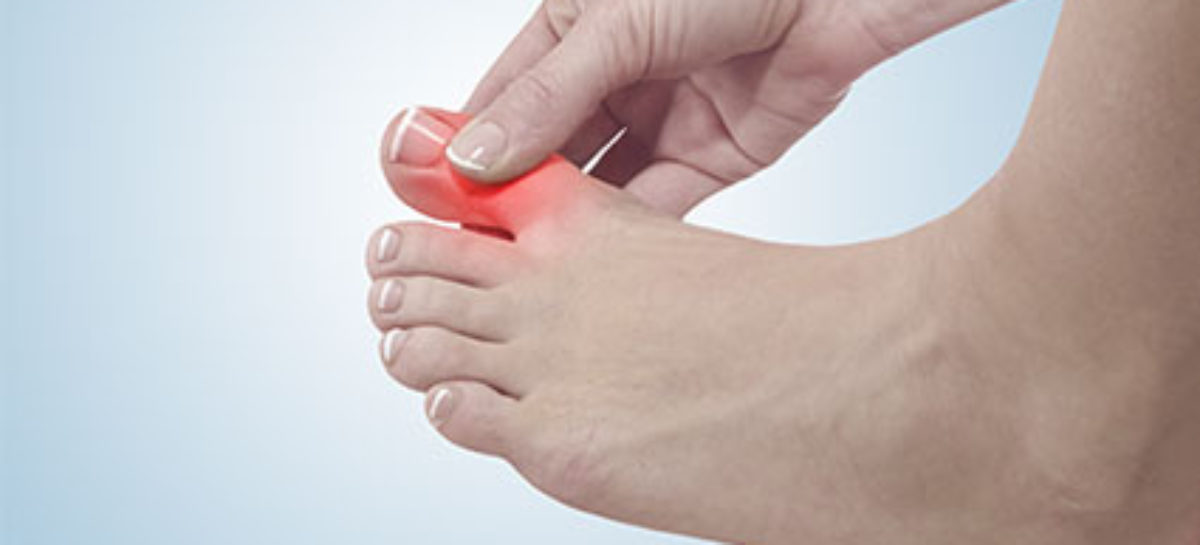An increase in uric acid in the blood must be treated without delay. All animal cells contain DNA which are in the nucleus of the cell. When a cell dies, this DNA is broken down into amino acids, some of which are converted into other chemicals. Those which are not converted turn into uric acid which is a waste product that the kidney excretes through urine. If there is an excess of this waste matter in the blood it can collect at the joints and cause inflammation, pain, tenderness and difficulty in movement. The condition is commonly known as gout. While the onset of gout can develop over time, it can also be caused by a sudden excessive consumption of alcohol, rich foods, consuming some medicines or a localized injury. An attack of gout typically resolves itself in one to two weeks, but as the levels of the acid continue to increase, the attacks become more frequent and last for longer durations. At times, fever may result.
If the condition is not controlled, the acid crystal turns into visible lumps under the skin. The existence of the crystals in the joints and under the skin can lead to bone erosion which will ultimately result in deformation of the bones and ruptures of the skin which can lead to infections.
Diagnosis
Gout is usually diagnosed by using a syringe to draw fluid from the affected joint which is then laboratory tested for the presence of high levels of uric acid. The common place for signs of gout to first appear is the big toe, but the symptoms can also start at other joints. A specialist will make a clinical diagnosis of the existence of gout based on the test results, and an evaluation of the risk factors that exist for a patient.
Treatment
The normal treatment protocol is based on the use of medications including anti-inflammation medicines to reduce the acute pain. While in the case of some mild attacks over-the-counter medications may be effective, in more serious cases prescription medications are required. It is important to note that gout is not like a strained muscle which can usually be self treated. Because of the underlying causes, it is important that a medical evaluation is done so that the right medication can be prescribed. In the case of prescription medications such as corticosteroids, these may be given as tablets or injected directly into the affected joint.
While medication can relieve pain and discomfort, the long term control of uric acid levels to prevent recurrence of the problem requires lifestyle changes, predominantly dietary control. Once gout is diagnosed, a professional dietitian will be able to analyze the existing dietary habits, identify factors the promote that incidence and severity of gout attacks and then create a diet plan that will help in bringing down and controlling uric acid levels.
Any person with gout must keep in mind that there is no one specific treatment of the condition and a detailed medical examination followed by medication and dietary changes as advised by a nutrition professional is the right way to control uric acid levels and treat gout.
Kauvery Hospital is globally known for its multidisciplinary services at all its Centers of Excellence, and for its comprehensive, Avant-Grade technology, especially in diagnostics and remedial care in heart diseases, transplantation, vascular and neurosciences medicine. Located in the heart of Trichy (Tennur, Royal Road and Alexandria Road (Cantonment), Chennai, Hosur, Salem, Tirunelveli and Bengaluru, the hospital also renders adult and pediatric trauma care.
Chennai – 044 4000 6000 • Trichy – Cantonment – 0431 4077777 • Trichy – Heartcity – 0431 4003500 • Trichy – Tennur – 0431 4022555 • Hosur – 04344 272727 • Salem – 0427 2677777 • Tirunelveli – 0462 4006000 • Bengaluru – 080 6801 6801



